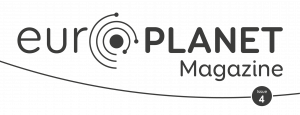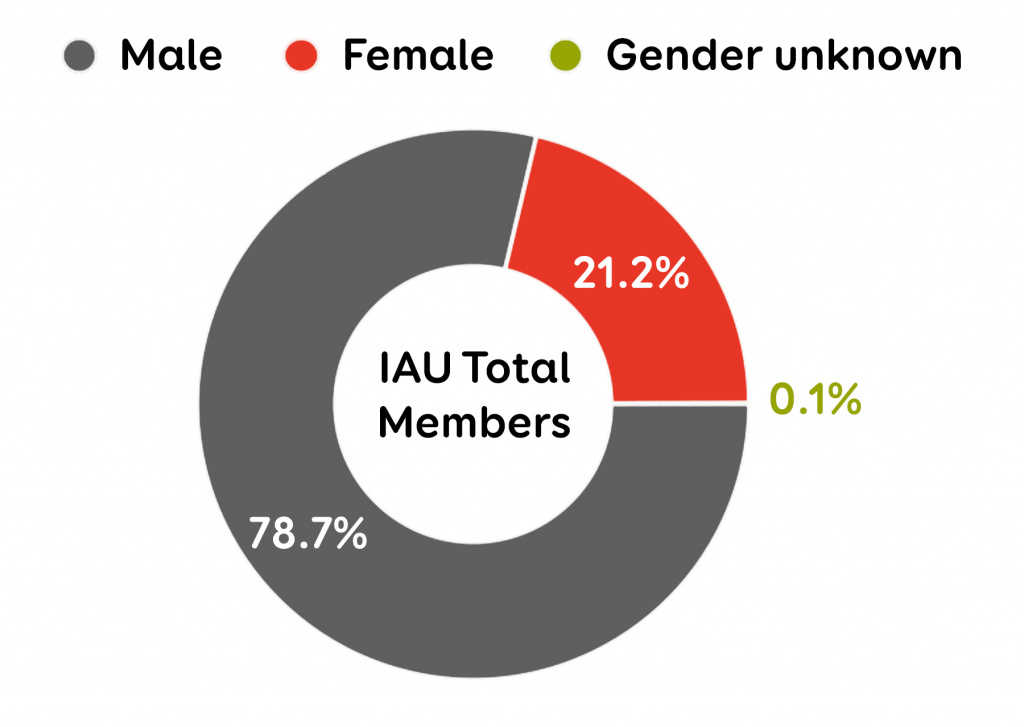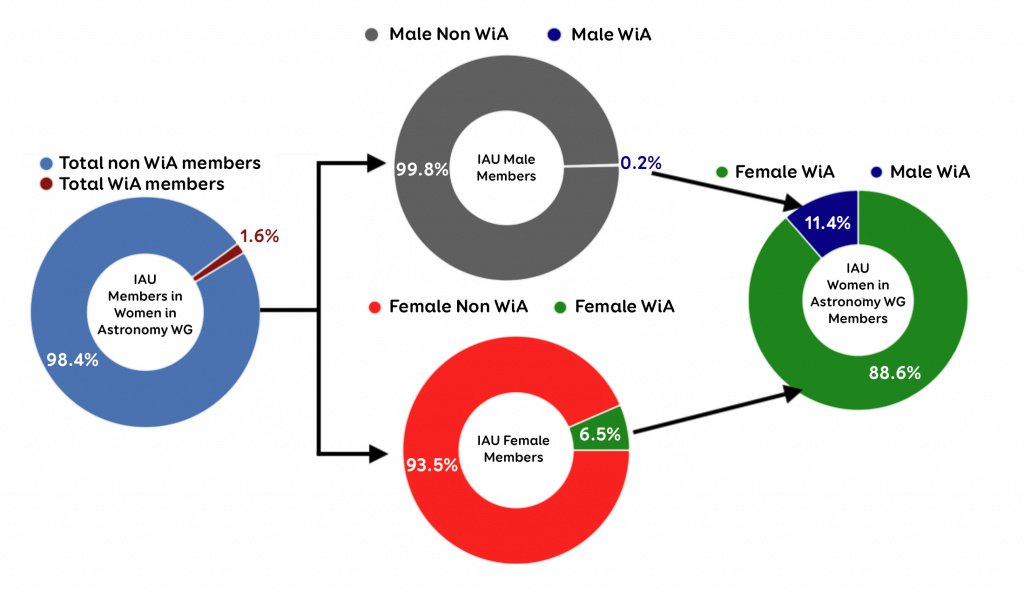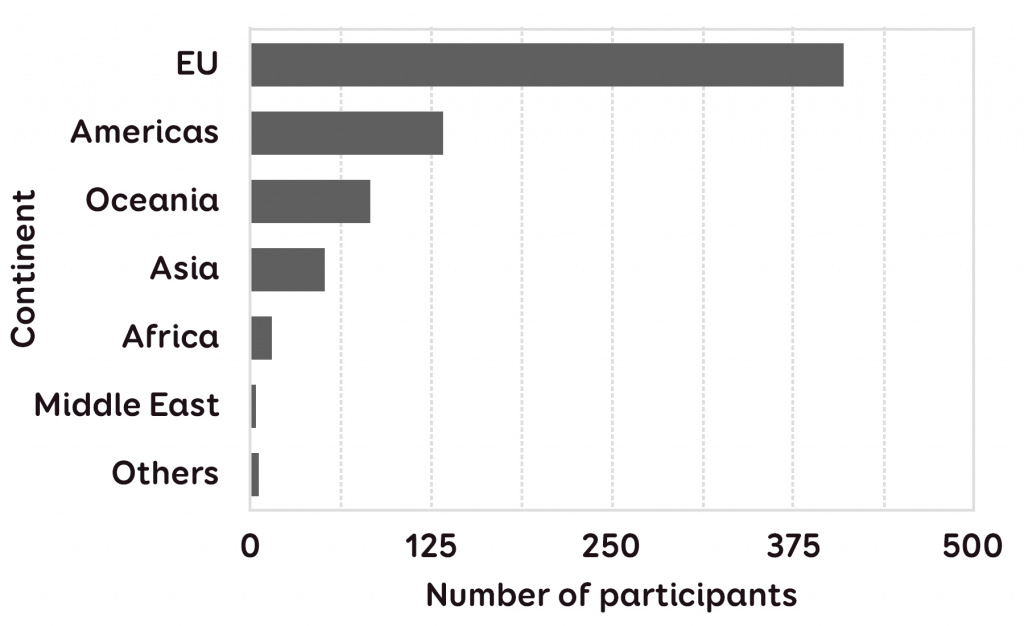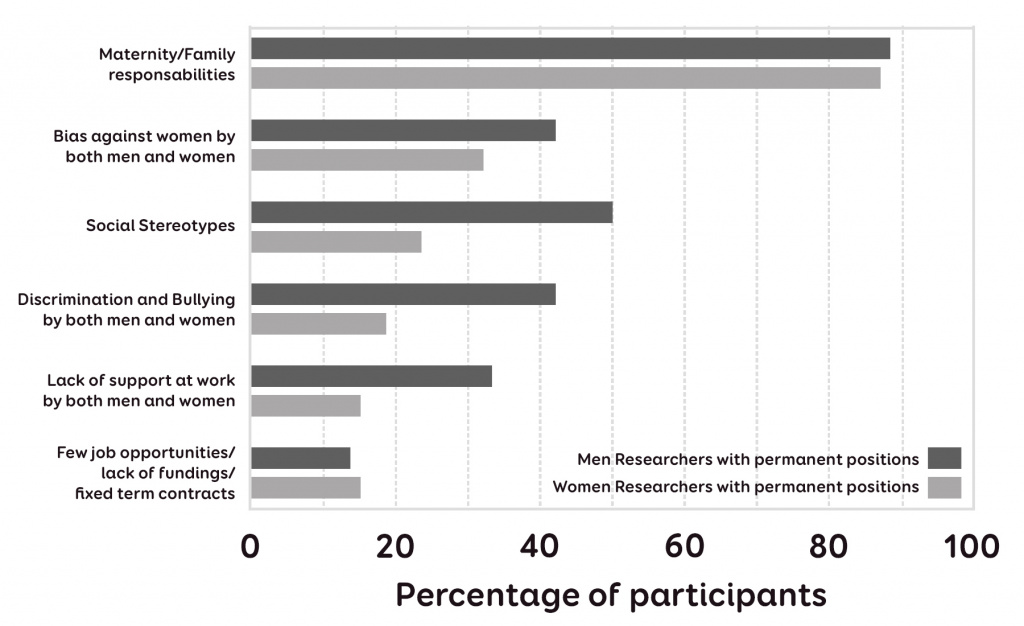Status of Women in Astronomy: Still a Long Way to Go
Mamta Pommier (LUMP/CNRS, Université de Montpellier, France) and Arianna Piccialli (Royal Belgium Institute of Space Aeronomy, Belgium), on behalf of the IAU Women in Astronomy Working Group, take a first look at factors suppressing the careers of women astronomers around the world.
Read article in the fully formatted PDF of the Europlanet Magazine.
For decades, women have been under-represented in the fields of astronomy and STEM (science, technology, engineering and mathematics) due to a variety of factors suppressing their careers. While there have been global efforts in the past to address these issues, they have only been marginally successful and recent global surveys do not show promising trends.
The IAU strategic plan from 2020-2030 aims to address the challenges faced by women in working in astronomy, foster inclusiveness, and facilitate the advancement of the next generation of astronomers. By developing effective policies and action plans, the strategy aims to improve gender-balance and equal opportunity in the workplace.
The IAU membership data for the last 25 years suggests that the percentage of women among the total members has risen from 11.2% in 1997 to 20.7% in 2021. However, digging into the statistics further presents a more complex picture. There was a slow increase of 1.7% from 1997 to 2006, a surge of up to 6.1% in 2015 due to an increase in registrations by younger members globally, followed by another period of slow growth (1.7%) from 2015 to 2021.1
In 2022, only 21.2% of all IAU members are female, and just 1.6% of members from any gender participate in the Women in Astronomy Working Group (Figures 1 and 2). This astonishingly low figure reflects a poor engagement of members in activities to promote equity, diversity and inclusion.
A survey conducted by the IAU Working Group from 2019-2021 on working conditions of women in astronomy received responses from 750 members around the world, mainly from EU countries (Figure 3).2
The results of this survey suggest that the most prominent factors reported as affecting the career of women astronomers are: maternity breaks, child and family caring responsibilities, stereotypes, non-permanent or low paid positions, suppression of work and expertise, lack of acknowledgment, the ‘leaky pipeline’ and ‘glass ceiling’ effects, unethical and biased work evaluation, unfair hiring practices, humiliation and bullying by younger and older colleagues due to working conditions, discrimination due to origin, and sexual/mental harassment issues by both male and female colleagues (Figure 4).
*Other factors include: Lack of women Role models, Lack of flexibility, Glass ceiling effect, Unethical/unfair work evaluation by both men and women, Sexual and Mental harassment by both major and minor groups, Partner/Family support, Lack of Motivation/self confidence, Imposter syndrome, Lack of visibility/no acknowledgement/suppression by both men and women, Racism by both men and women, Need for over Socialisation to get jobs, Overworking constraints, Low salary, “I don’t know any”.
While gender-balance policies have existed in workplaces for decades, they have proved to be ineffective, due to a lack of funds to support women in astronomy at every career stage. Most of the work related to gender-balance is being carried out on a volunteer (unpaid) basis, since (largely) no funds are provided to address these issues by funding agencies and institutions. However, with the impacts affecting half of the working population in this field of expertise, this is an area of serious concern for all astronomy.
In December 2021, the IAU Women in Astronomy Working Group launched Ensemble, a magazine to offer a voice to women in astronomy to share ideas, experiences, skills, define key efforts for the future, and engage policy makers and worldwide citizens. You can find a full report on the survey and much more in the first issue. For any queries, contact Mamta Pommier (Chair, IAU Women in Astronomy, email: mamtapan@gmail.com).
References:
1. Cesarsky et al. 2010, DOI: doi.org/10.1111/j.1468-4004.2010.51233.x; Primsa et al. 2021 , DOI: doi.org/10.1515/pac-2021-0202
2. Pommier et al 2021 https://bit.ly/EnsembleIAU

